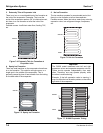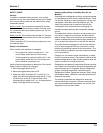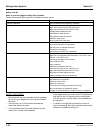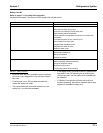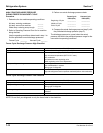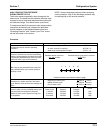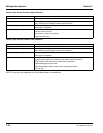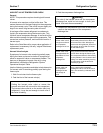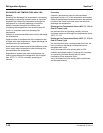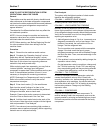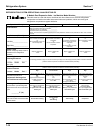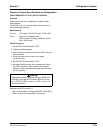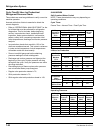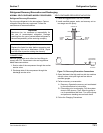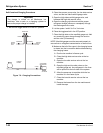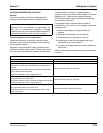
Refrigeration System Section 7
7-16
Part Number 80-1634-3
DISCHARGE LINE TEMPERATURE ANALYSIS
General
Knowing if the discharge line temperature is increasing,
decreasing or remaining constant can be an important
diagnostic tool. Maximum compressor discharge line
temperature on a normally operating ice machine
steadily increases throughout the freeze cycle.
Comparing the temperatures over several cycles will
result in a consistent maximum discharge line
temperature.
Ambient air temperatures affect the maximum discharge
line temperature.
Higher ambient air temperatures at the condenser and/
or higher inlet water temperature = higher discharge line
temperatures at the compressor.
Lower ambient air temperatures at the condenser and/or
lower supply water temperature= lower discharge line
temperatures at the compressor.
Regardless of ambient and water temperatures, the
freeze cycle discharge line temperature will be higher
than 160°F (71.1°C) on a normally operating ice
machine.
Procedure
Connect a temperature probe on the compressor
discharge line with-in 6" of the compressor and insulate.
Observe the discharge line temperature for the last three
minutes of the freeze cycle and record the maximum
discharge line temperature.
Discharge Line Temperature Above 160°F (71.1°C) At
End Of Freeze Cycle:
Ice machines that are operating normally will have
consistent maximum discharge line temperatures above
160°F (71.1°C).
Discharge Line Temperature Below 160°F (71.1°C) At
End Of Freeze Cycle
Ice machines that have a flooding expansion valve will
have a maximum discharge line temperature that
decreases each cycle.
Verify the expansion valve sensing bulb is 100%
insulated and sealed airtight. Condenser air contacting
an incorrectly insulated sensing bulb will cause
overfeeding of the expansion valve.
Verify the expansion valve sensing bulb is positioned
and secured correctly.



